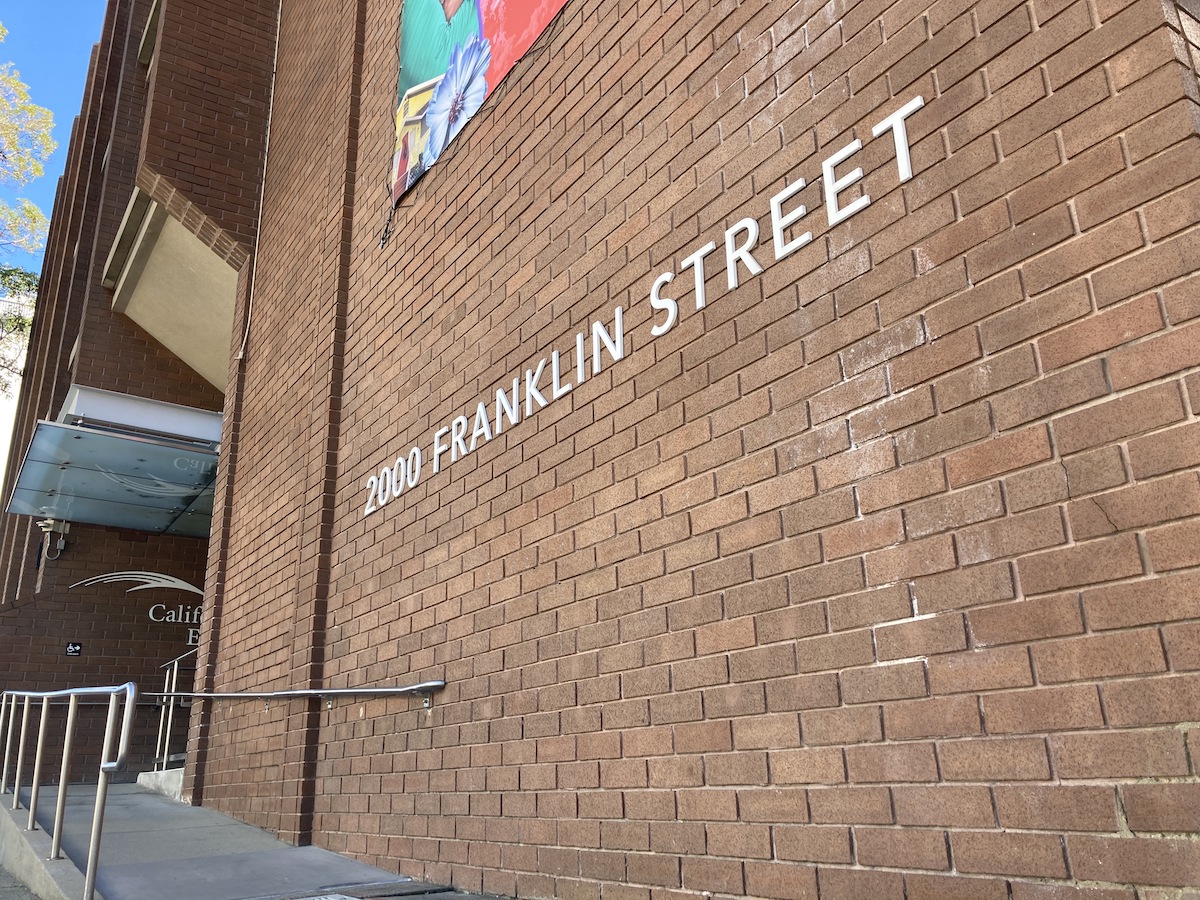California’s attorney general has issued a cease-and-desist order to an Oakland organization led by a controversial activist, saying the group has illegally solicited and received donations despite failing to register as a nonprofit with the state.
Attorney General Rob Bonta’s May 10 order comes after months of warnings sent to Neighbors Together Oakland, a group founded in 2021 by Seneca Scott, who ran for Oakland mayor in the last election. Bonta said Neighbors Together also failed to file required financial forms.
“You are ordered to immediately CEASE AND DESIST from all operations, including all solicitations for charitable purposes by any means,” the letter says. Bonta warned the organization that it could face sanctions or other consequences if it doesn’t comply with the order.
Read more of our nonprofit accountability reporting
Neighbors Together seems to have deactivated the donation page on its website, though it still has a “donate” button leading to the missing page. Despite repeated warnings from the attorney general that it could not solicit contributions without registering, the group asked for donations in emails to followers as recently as April 16.
Neighbors Together organizes against what it sees as the failure of city government to make Oakland safe and clean. Its mission statement criticizes politicians who’ve become “dominated by outside special interests, like our local Public Sector Unions and unaccountable nonprofits, that no longer answer to the needs of working neighbors.”
One of its first actions as an organization was suing Oakland, alleging the city had failed to enforce its encampment policy and close homeless camps. The case was later dismissed.
Neighbors Together says it intends to organize “the most powerful voting bloc in Oakland” in the 2024 election. Its founder Scott ran unsuccessfully for City Council District 3 in 2020, before his failed mayoral bid in 2022, and he’s now one of the leaders of a campaign to recall Mayor Sheng Thao. He frequently criticizes the mayor and her “woke cabal” on social media.
Scott got into a publicized altercation at a recent recall rally he organized to disrupt a press conference by the mayor. Last year, Scott publicly accused a mayoral staffer who’s gay of being a pedophile without any evidence, receiving condemnation from LGBTQ+ groups.

In the fall, the right-leaning Free Press reported that Scott planned to use Neighbors Together to find and support “100 nontraditional candidates” for city councils and school boards across the U.S., later helping get them elected to higher offices.
The IRS says 501(c)(3) organizations like Neighbors Together Oakland are “absolutely prohibited from directly or indirectly participating in, or intervening in, any political campaign on behalf of (or in opposition to) any candidate for elective public office.”
A 501(c)(3) status is awarded by the federal government to an organization determined to serve the public interest, such as a charity, religious organization, or educational institution. In exchange, the nonprofit receives an exemption from paying many taxes.
The IRS online database shows that Neighbors Together was awarded a nonprofit tax exemption in 2021, but this status was automatically revoked after the organization failed to file required tax documents three years in a row. Nonprofits must file these “Form 990s” annually to demonstrate compliance with tax law and provide transparency around their finances.
Neighbors Together still describes itself as a 501(c)(3) organization on its website.
Scott did not respond to emails or a text message requesting comment for this article. David Olofson, who’s listed on a state business form as the chief financial officer of Neighbors Together, also did not respond to an email.
On Friday, after this article was published, Neighbors Together sent an email to its mailing list, saying the group will appeal Bonta’s order.
“As many of you may have now seen, NTO was served a cease and desist letter from the AG’s office,” says the statement, first reported on Twitter by Mark Misoshnik. The statement describes Neighbors Together as a “young, meagerly resourced non-profit trying to do good for Oakland” with a “small amount of capital.” The group says it relied on volunteers to do its clerical work and did not receive services it was promised.
The organization says it’s hired an accountant and plans to make its backlog of 990 tax forms publicly available.
Several warnings from California attorney general

California’s Office of the Attorney General first hit Neighbors Together Oakland with a notice to register in September 2023, spelling out several documents the group was required to file, including an application form, bylaws, a determination letter from the IRS, a fee, and more. He sent a final notice that November reiterating these requirements. These notices said the group couldn’t receive donations until it registered.
On April 5, Bonta again contacted Neighbors Together and Scott, recommending that the state tax board revoke the organization’s tax-exempt status. A little over a month later, the cease-and-desist letter came.
Mailing out a cease-and-desist order to a California nonprofit organization is an unusual step for the state to take, said Rose Chan Loui, executive director of UCLA’s Lowell Milken Center on Philanthropy and Nonprofits.
“When it’s a one-time thing, and it’s clearly a glitch, I don’t think the attorney general would care if you continue to operate,” Loui said. A cease-and-desist signifies a “recurring pattern.”
“I think it’s pretty serious,” she said. “It doesn’t sound like something they should take lightly.”
Typically, an organization’s failure to register is due to a “minor oversight” or processing delay, said Geoff Green, CEO of the California Association of Nonprofits. “Those in and of themselves don’t typically result in something like a cease-and-desist.”
Loui said there’s a good reason this registration requirement exists for organizations that receive support from the public.
“The only way that the attorney general can monitor that you’re using your assets for public good is for you to register,” she said. “It’s very much an important part of the system, making sure these organizations are doing what they say they’re doing.”
The Internet Archive shows that as recently as April 4, the Neighbors Together website had a page soliciting donations.
On April 16, Neighbors Together sent an email to subscribers inviting them to volunteer at an upcoming cleanup event at Lake Merritt. It included an invitation to donate.
“Organizing these events and working to hold the city accountable to make sure the parks remain well-taken care of requires time, energy and labor. Please consider chipping in below to support our continued efforts to revitalize Oakland,” the email said, followed by a donation link.
The email was sent before the cease-and-desist letter prohibited solicitations of donations but after three letters from the attorney general warned that the group was out of compliance.
Bonta’s letter says Neighbors Together can appeal his cease-and-desist order within 30 days.
This article was updated after publication with a statement that Neighbors Together Oakland posted the following day.




